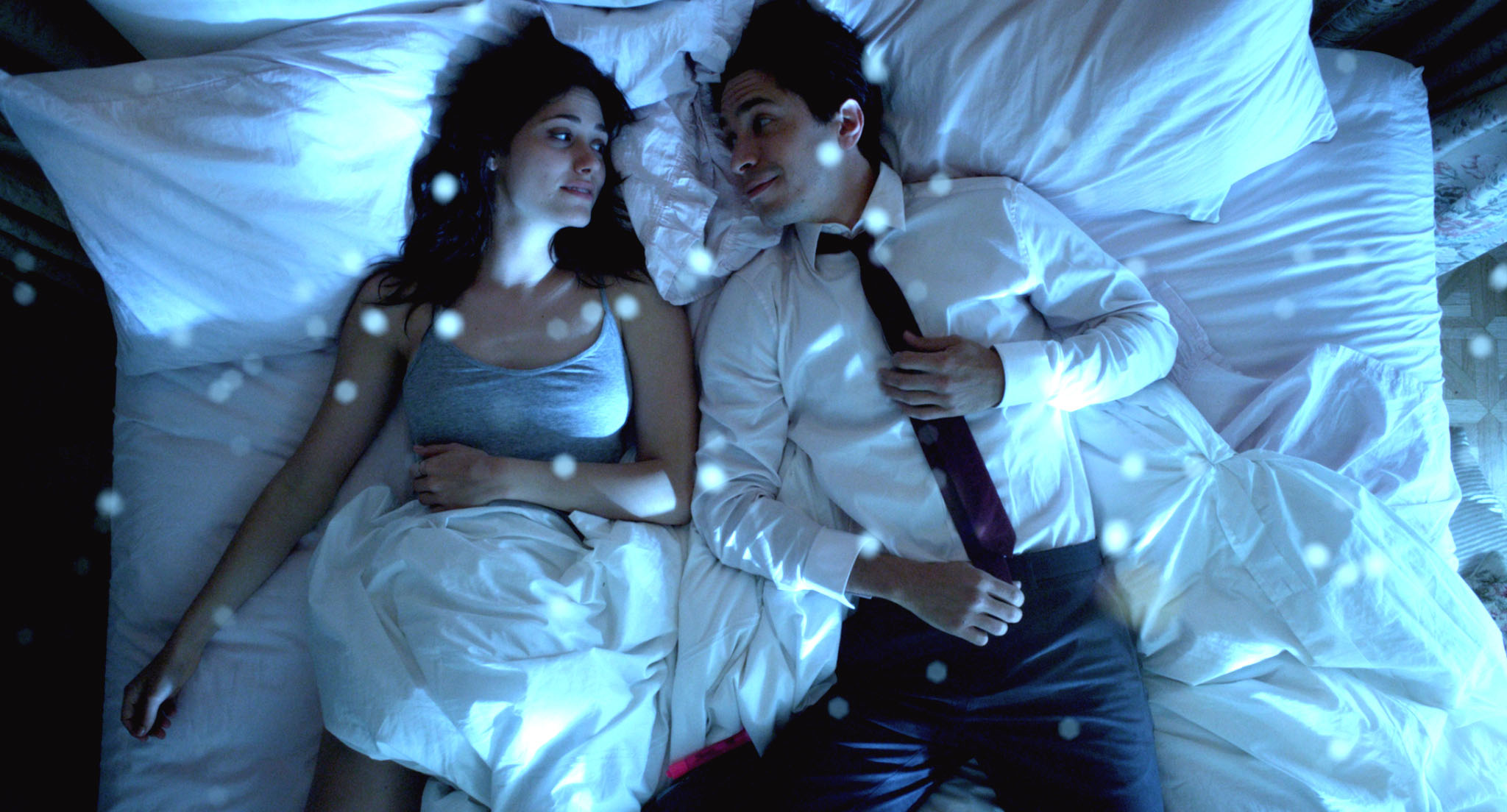A personal theory of mine is that all relationships are phases we go through. Though not all phases are equal — some are more memorable than others. To Kimberly (Emmy Rossum) and Dell (Justin Long) in "Comet," their relationship was a long, incredibly eventful phase that neither of them ever really outgrew, even if at many points they called it quits to go their separate ways.
"Comet" is a love story from first-time director Sam Esmail — and somewhere in a parallel universe, a 25-year-old Woody Allen is kicking himself for not making this first. Speaking of which, "Comet" is set in a parallel universe (the very concept is so 20th-century), beginning with a meteor shower and jumping back and forth over a six-year period. Senseless, confusing and ridiculously romantic, this is the kind of movie that makes you sigh with nostalgia for an era when love stories mostly featured young people in cheap clothes instead of well-groomed over-40 urbanites squabbling about money and marriage.
Kimberly and Dell have an amazing chemistry going — they never seem to stop talking to each other, even when they break up and are supposedly not talking to each other. Between them there's a crackling urgency to keep communicating, whatever happens, and at all costs.
The problem with this pair is their relentless self-absorption — a major road bump that gets in the way of liking them completely. Dell is especially guilty of insufferable smart aleck-ness. He's also convinced he's the smartest guy anyone could hope to meet and seems at a loss when others don't share that opinion.
Fortunately for Dell, his nonstop verbosity and cockiness works on Kimberly when they first meet at a meteor shower viewing at a college campus. He's witty, makes her laugh (and vice versa) and talks her into giving him her number even though she's with another date (Eric Winter). Their encounter is a little too mindful of the one between Woody Allen and Diane Keaton in "Annie Hall," and the fact that Kimberly is wearing glasses makes her look like an East Coast hippie.
After this, the story accelerates to a wedding they attended in Paris years later, and their conversations have evolved from issues of love and commitment to philosophical meanderings on the meaning of life. Not that they have anything especially profound to say, but it warms the heart to see a couple so intent on talking to each other. They gauge each other's thoughts and moods from words, cultural references and facial expressions and even when the talking turns into bickering (and then screaming), they never lose interest because, well, this is love, right?
In real life it's a mode of communication fast becoming obsolete — on dates, people are more likely to just keep scrolling their phones even as they face each other across a dinner table. (I know a couple who conducted an entire break-up over their respective tablets while seated at a Starbucks counter.) In "Comet," the camera picks up and lingers on the details of Kimberly's face, just as Justin is noticing and registering those details as he talks to her: a strand of dark hair falling across one cheek, the way her eyes move upward when she's thinking of something funny to say. There's a lot of gorgeous, sci-fi inspired cinematography here by Eric Koretz, but none seem as intriguing as the ones depicting Kimberly's face or Dell's gaze as he watches her.
For all that, don't bank on a happy ending. In fact, don't bank on anything coherent in the last 15 minutes. At one point, Kimberly asks Dell, "Why wouldn't we want this always?" Why indeed? Despite the sizzling chemistry and absorbing conversations, there's always this air of doom in the Dell-Kimberly relationship. Their phase ends and they have to move on, whether they're ready or not.
| Rating | |
|---|---|
| Run Time | 91 mins |
| Language | English |
| Opens | Dec. 12 |



















With your current subscription plan you can comment on stories. However, before writing your first comment, please create a display name in the Profile section of your subscriber account page.